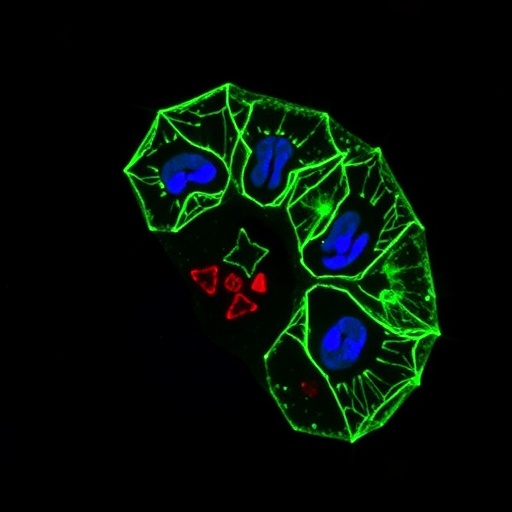
Recent advancements in cancer treatment often underscore the challenges faced by patients, particularly those undergoing radiotherapy. One of the most debilitating side effects linked to radiation treatment is oral mucositis, a painful inflammatory condition that severely affects the lining of the mouth. Recent research has evaluated the efficacy of two dietary supplements, L-arginine and L-glutamine, in mitigating the effects of this distressing condition. Given the substantial impact that mucositis can have on quality of life, understanding the potential benefits of these supplements is vital.
A notable study spearheaded by researchers Hassanein, Mikhail, and Elkot has brought new insights into the management of radiation-induced oral mucositis. This triple-blind randomized trial sought to compare the effectiveness of L-arginine and L-glutamine oral suspensions among patients receiving radiotherapy. By using a rigorous clinical trial design, the researchers positioned themselves to provide unbiased results that could offer actionable directions for clinical practices.
Once the trial was set in motion, participants who were undergoing radiation treatments were enlisted. Patients often emerge from radiotherapy with complaints of discomfort, making the search for relief essential. The inclusion of a placebo control group bolstered the reliability of the findings as it provided a standard against which the actions of both supplements could be measured.
What differentiates this study from previous investigations in the field is its multifaceted approach—while assessing the physical impacts of these supplements, researchers also considered psychological aspects. Many patients grapple with anxiety stemming from their treatment, which can exacerbate feelings of discomfort and pain. The holistic perspective adopted by this trial might open avenues toward a more comprehensive standard of care for radiation patients, ultimately enhancing overall patient outcomes.
In a world where scientific rigor is paramount, the study employed a well-defined methodology. Participants were randomized into groups receiving either L-arginine or L-glutamine, and their clinical response was meticulously documented. The use of validated assessment tools allowed researchers to standardize the pain measurements and mucositis scores effectively. Patients were monitored closely, ensuring that a wealth of data could be collected regarding symptomatic relief and nutritional impacts.
Emerging from the study are important implications regarding the mechanisms by which L-arginine and L-glutamine might exert their effects. L-arginine, known for its role in nitric oxide production, may improve circulation and promote healing processes at the cellular level. Conversely, L-glutamine is thought to provide essential nutrients for rapidly dividing cells, thus enhancing the health of the mucosal barrier. The distinct biochemical pathways associated with these supplements may help clinicians tailor interventions based on individual patient needs.
As the data began to unfold, it revealed various trends that could influence clinical recommendations for managing mucositis. While both supplements demonstrated potential benefits, nuances in their effects emerged, raising questions about which might be more suitable for specific demographics within the cancer patient population. For instance, age, baseline nutritional status, and overall health could significantly impact how a patient responds to either L-arginine or L-glutamine.
The researchers also stressed the value of compliance in therapeutic settings. Often, patients may struggle with adherence to supplement protocols, particularly if they pose any new challenges in their already complex treatment regimes. By ensuring that the supplements used were in oral suspension form, participants had an easier time integrating the treatment into their daily lives, thus improving the reliability of the results.
While the study presents promising outcomes, it also poses additional questions. Future research may delve deeper into the long-term effects of supplementation on mucositis and quality of life. Could these interventions not only alleviate symptoms during treatment but also contribute to improved healing post-therapy? As the field of oncology continues to evolve, such inquiries will be essential for enriching patient care standards.
Additionally, communication between healthcare providers and patients is crucial. The psychological impact of a cancer diagnosis, compounded by painful side effects, necessitates a tailored approach to patient education regarding the use of nutritional supplements. Ensuring that patients are well-informed allows for shared decision-making, fostering a sense of empowerment.
Moreover, the interplay between oncological care and nutritional strategies could herald a more integrated approach to cancer treatment. The findings from this trial may inspire a broader re-examination of how healthcare professionals can arm patients with the knowledge and tools needed to combat the side effects of their treatments proactively.
Encouraging results from the study are likely to resonate within the medical community, prompting further investigations into these and other dietary interventions. As researchers continue to reflect on the implications of these findings, it becomes evident that patient advocacy should also play a vital role. Collaborative frameworks that involve multidisciplinary teams will ultimately shape the future landscape of cancer care.
In conclusion, the research presents a pivotal step forward in addressing the challenges faced by patients undergoing radiation therapy. By evaluating the efficacy of L-arginine and L-glutamine, the study not only highlights potential therapeutic strategies but also encourages continued dialogue surrounding integrative approaches to patient care. As the oncology landscape evolves, it remains essential to prioritize patient well-being through innovative treatments and compassionate care.
Subject of Research: Oral mucositis management in radiation therapy using dietary supplements
Article Title: L-arginine vs. L-glutamine oral suspensions for radiation-induced oral mucositis: a triple-blind randomized trial
Article References:
Hassanein, F.E.A., Mikhail, C., Elkot, S. et al. L-arginine vs. L-glutamine oral suspensions for radiation-induced oral mucositis: a triple-blind randomized trial.
J Cancer Res Clin Oncol 151, 198 (2025). https://doi.org/10.1007/s00432-025-06213-x
Image Credits: AI Generated
DOI: 10.1007/s00432-025-06213-x
Keywords: Oral mucositis, L-arginine, L-glutamine, radiation therapy, nutritional supplements, cancer care, patient outcomes.
Tags: cancer treatment side effectsclinical trial on mucositisdietary supplements for cancer patientsL-arginine mucositis treatmentL-glutamine oral suspension efficacymanaging radiotherapy side effectsnutritional support for cancer therapypainful inflammatory conditions in oncologyplacebo-controlled trial designQuality of Life in Cancer Patientsradiation-induced oral mucositisrandomized trial on dietary interventions




